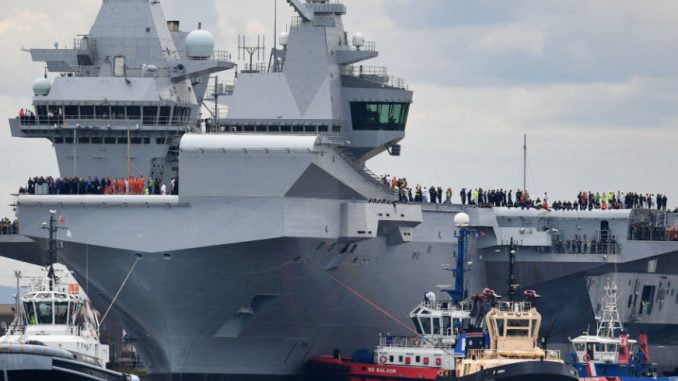

HMS Queen Elizabeth, the Royal Navy’s newest vessel and the largest one ever built in the United Kingdom, is an impressive ship. Nine hundred and nineteen feet long with a crew of 1,600, the ship can carry up to 40 aircraft. Queen Elizabeth and her sister ship, Prince of Wales, will form the UK’s main expeditionary force at sea, sailing into hotspots with their decks full of F-35 Joint Strike Fighters.
Oh, and Queen Elizabeth also runs Windows XP.
The brand new carrier left its dockyard in Rosyth for the first time on Monday, where it was assembled from subsections built all over the UK. The London-based newspaper The Guardian reported that computers running the positively ancient PC operating system were spotted on the carrier during a tour.
The Windows XP operating system was released by Microsoft in 2001. The software company ceased selling the OS in 2008 and has slowly dropped support for XP, including malicious software definitions, urging users to migrate to Windows 7, 8, and 10. Just last month computers running XP and part of the UK’s National Health Service were targeted in a cyberattack using sophisticated ransomware.
It’s not certain how Windows XP got on board Queen Elizabeth. Construction of the carrier began in 2008, the same year Microsoft stopped selling it. The software might have arrived as computer systems from older ships were recycled for the new carrier. Controversy erupted earlier this year when it was discovered that the UK’s nuclear missile submarines, which embark Trident missiles armed with thermonuclear warheads also ran XP.
The commander of the Queen Elizabeth‘s air wing insists that despite the aging software it won’t present an avenue for cyberattack, saying escorts will keep intruding ships at bay and that the supply channel will eventually replace outdated operating systems. Queen Elizabethwill also have its own dedicated group of “cyber specialists” onboard to defend against hacking.

